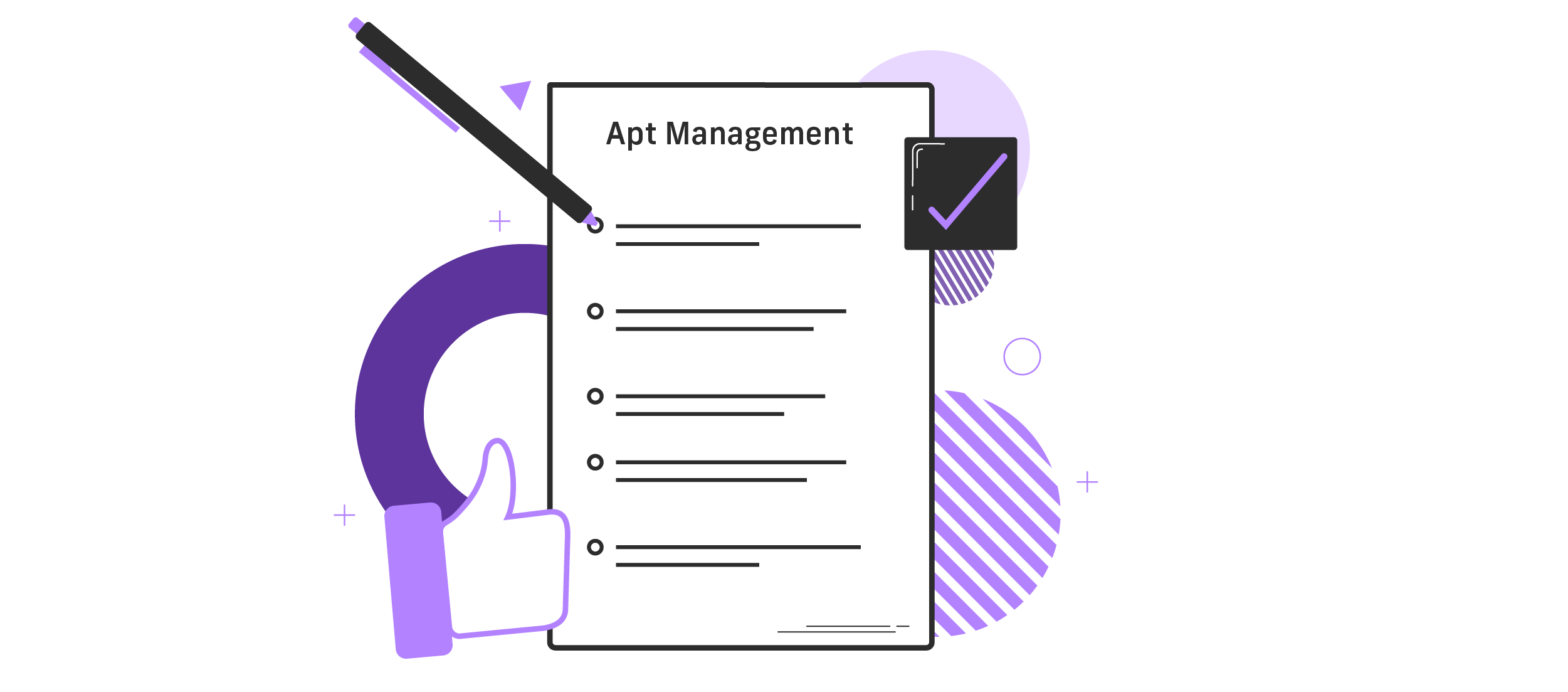As property owners, the responsibility of overseeing day-to-day operations, handling resident interactions, and ensuring profitability often falls on your shoulders. Embracing the principles of effective property management is essential for turning real estate assets into thriving investments. This guide will delve deeper into five key principles of effective property management, the role of technology on your property, and some tools that can help you achieve success.
 Top Five Tips to be Successful in Property Management
Top Five Tips to be Successful in Property Management
1. Master the Art of Communication
Property management requires a meticulous approach to ensure the seamless functioning of apartment properties. Start by establishing clear communication channels with both renters and property management staff. Regularly inspect properties to identify maintenance needs proactively. Responding quickly to resident inquiries and addressing concerns promptly fosters trust and satisfaction, leading to long-term renter relationships.
The integration of Artificial Intelligence (AI) has emerged as a transformative force, especially in enhancing communication. AI-powered chatbots and virtual assistants like Quext Digital Human have revolutionized the way property managers engage with renters, property owners, and even vendors. These intelligent systems offer real-time responses to inquiries, automate routine interactions, and provide instant solutions to common problems. This not only improves communication efficiency, it also ensures a seamless experience for all stakeholders.
Moreover, AI-driven analytics can analyze communication patterns, enabling property managers to identify trends, preferences, and pain points, allowing them to tailor their communication strategies for better renter relationships. By harnessing the power of AI, property managers can unlock a new level of communication effectiveness that fosters transparency, accessibility, and overall satisfaction.
2. Establish a Strong Renter Screening Process
Selecting reliable renters is paramount to a thriving property management strategy. Developing an efficient renter screening process that includes credit checks, rental history verification, and reference checks is essential. This step reduces the risk of late payments, property damage, and eviction, leading to a more stable and profitable property.
Technology has brought unprecedented efficiency and accuracy to the renter screening process. Advanced online renter screening platforms have emerged as invaluable tools for property managers. These platforms allow you to swiftly gather essential applicant information, including credit reports, criminal history, rental payment history, and employment verification. Additionally, artificial intelligence algorithms can analyze this data to provide insights into an applicant’s suitability as a renter. Online applications and e-signatures streamline the entire process, reducing paperwork and saving time for both property managers and prospective renters. Moreover, integrated communication features enable easy correspondence with applicants during the screening phase. By leveraging these cutting-edge technologies, property managers can make well-informed decisions, mitigate risks, and secure renters who are more likely to uphold their rental obligations, ultimately contributing to a more successful and hassle-free property management experience.
3. Regularly Maintain Property Condition and Attraction
Property maintenance is a cornerstone of successful property management. Regular upkeep not only keeps properties habitable and safe but also attracts and retains renters. Preventative maintenance, such as replacing aging appliances and addressing plumbing issues, can prevent costly surprises down the line. Implementing a schedule of “safe and clean” inspections ensures you catch and address maintenance concerns promptly.
Technology and tools have revolutionized property maintenance practices, leading to increased efficiency and reduced costs. Computerized Maintenance Management Systems (CMMS) are at the forefront of this revolution, allowing property managers to schedule, track, and manage maintenance tasks with precision. These systems streamline workflows by automating work orders, sending maintenance alerts, and facilitating seamless communication between property managers, maintenance staff, and contractors. Additionally, sensor-based technologies, such as Quext IoT devices, enable real-time monitoring of property systems, detecting anomalies in utilities, HVAC, and security systems. This proactive approach to maintenance helps prevent costly breakdowns and ensures optimal property performance. Augmented reality (AR) tools have the capability to aid maintenance staff in diagnosing and solving issues on-site. By embracing these innovative technologies, property managers can not only ensure the longevity of their properties but also elevate renter satisfaction through prompt and efficient maintenance services.
4. Establish a Strong Financial Management and Budgeting Plan
Successful property management necessitates sound financial management. Create comprehensive budgets that encompass expenses like maintenance, property taxes, and marketing efforts. Keep detailed financial records and explore tools that help with bookkeeping and accounting. Pair this with long-term goals and strategies and your team will have the vision to stay focused and motivated.
The financial management and budgeting in property management has been revolutionized by technology, offering property managers powerful tools to optimize their financial strategies. Property management software equipped with robust accounting modules can automate rent collection, track expenses, and generate financial reports in real-time. These platforms streamline budgeting by allowing property managers to set up and monitor budgets for various aspects of property maintenance and operations.
Additionally, cloud-based financial management systems provide accessibility from anywhere, enabling property managers to keep a close eye on financial health even when on the go. Integration with payment gateways and automated invoicing ensures timely transactions, reducing the risk of financial discrepancies. Pairing this with an AI solution significantly enhances the debt collection process for property managers by providing advanced tools to streamline and optimize collection efforts. AI-powered algorithms can analyze historical data and renter behavior patterns to predict which renters are more likely to fall behind on payments. This predictive analysis enables property managers to proactively reach out to renters with personalized reminders and offers of assistance before debts escalate. Chatbots and virtual assistants equipped with AI can engage in real-time conversations with renters, answering queries, setting up payment plans, and even negotiating settlements within predefined parameters. With detailed financial data readily available, property managers can make informed decisions, identify cost-saving opportunities, and adapt their strategies for long-term financial success in apartment property management.
5. Focus on Marketing and Resident Retention
The dual strategies of marketing and resident retention play a pivotal role in maintaining occupancy rates and ensuring long-term success. Effective marketing efforts are essential to attract new renters to vacant units. Crafting compelling property listings, utilizing professional photography, and leveraging online platforms and social media can help showcase the property’s unique features and amenities, enticing potential renters to consider making it their new home.
Equally important is resident retention, as retaining existing renters is often more cost-effective than finding new ones. Building strong renter relationships through prompt maintenance responses, attentive communication, and a positive living experience fosters renter loyalty. Offering incentives such as lease renewal benefits, community events, or improved amenities can further solidify renter satisfaction. By striking a balance between effective marketing to attract new renters and dedicated resident retention efforts to keep existing ones, apartment property managers can create a stable and thriving rental community that benefits both the property’s financial health and renter well-being.
Technology and tools have transformed the landscape of marketing and resident retention in apartment property management. Digital marketing platforms offer targeted advertising capabilities, allowing property managers to reach specific demographics and potential renters with tailored messages. Virtual property tours and 3D floor plans enable prospective renters to explore units remotely, enhancing the property’s online presence and expediting the decision-making process.
AI is seeking to elevate community marketing efforts. By harnessing the power of AI-driven analytics, property managers can gain deep insights into their target audience’s preferences, behaviors, and demographics. This information enables them to create highly targeted and personalized marketing campaigns that resonate with potential renters. AI can analyze online engagement data and social media interactions to identify which channels and content formats yield the best results. AI-powered solutions such as our very own Digital Human can engage with website visitors in real-time, answering inquiries, scheduling tours, and providing information 24/7, enhancing the overall customer experience. Furthermore, AI-generated content and visuals can assist in creating eye-catching advertisements and virtual property tours that captivate prospective renters. By leveraging AI, property managers can optimize their marketing strategies, refine their messaging, and ultimately attract a more qualified and interested renter base to their community.
For resident retention, property management software can facilitate seamless communication between property managers and renters. Automated reminders for lease renewals and personalized messages on renters’ milestones contribute to positive renter relationships. Online resident portals enable renters to submit maintenance requests, pay rent, and access important documents conveniently, enhancing their overall experience.
Surveillance and security technologies not only improve safety but also instill a sense of security among renters, boosting their desire to stay. Smart building amenities like keyless entry systems, package lockers, and communal spaces equipped with Wi-Fi contribute to renter satisfaction and a sense of community.
By harnessing these technological advancements, property managers can effectively market their properties, streamline renter communication, and create an environment that encourages resident retention, ultimately leading to increased occupancy rates and a thriving rental community.
In the dynamic world of property management, the journey towards success is paved with careful strategies, innovative technologies, and dedicated efforts. This comprehensive guide has navigated through 5 principles that underpin effective property management, while also shedding light on the remarkable role that technology and tools play in shaping this landscape. From mastering communication to deploying AI for renter screening, utilizing cutting-edge maintenance technology, optimizing financial management through automation, and crafting compelling marketing strategies – every facet of property management can be enhanced through technological integration.
Property managers are now empowered to capitalize on AI’s predictive capabilities, streamlined communication, and data-driven insights, propelling their ability to make informed decisions that drive profitability. Moreover, the intersection of technology with resident retention and marketing amplifies efforts to not only attract new renters, but also cultivate lasting relationships that underlie property stability.
In embracing these practices and technologies, property managers step into an era of unprecedented opportunity and efficiency. As the property management field continues to evolve, staying informed of emerging technologies and adapting to changing market dynamics will be key to thriving in this dynamic industry. By integrating the right tools, cultivating strong renter relationships, and harnessing the power of innovation, property managers can lead their investments towards sustainable success and create thriving communities that renters are proud to call home.



